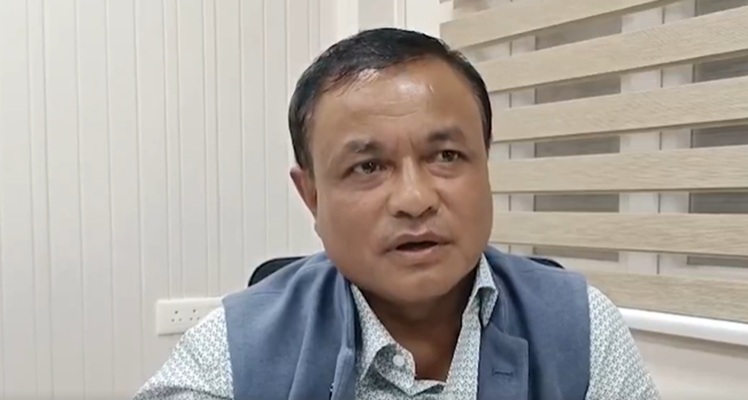Shillong: Jirang legislator Sosthenes Sohtun has expressed support for the introduction of goods trains up to Byrnihat in Ri-Bhoi district, even as the long-pending Tetelia–Byrnihat railway project continues to face opposition from several local groups.
The project, which has remained in limbo for nearly a decade, involves only about two kilometres of track within Meghalaya’s territory.
However, concerns over the possible influx of outsiders have kept it from moving forward, with pressure groups demanding that a protective mechanism such as the Inner Line Permit (ILP) be implemented first.
Sohtun, whose constituency includes Byrnihat, said any progress on the railway link must depend on a consensus among all stakeholders.
“Personally, I am in favour of allowing goods trains. But this should be discussed and decided collectively with concerned groups,” he stated.
The MLA’s remarks come amid renewed discussions on the benefits of rail connectivity in other parts of the state.
Tourism Minister and Resubelpara MLA Timothy D. Shira had recently said that the Mendipathar railway line in North Garo Hills has brought significant economic advantages without triggering the feared influx of non-tribals.
According to Shira, the Mendipathar station has facilitated the transport of essential goods to Shillong and other districts, while also giving Garo Hills farmers direct access to markets in Guwahati.
“Farmers now sell their produce easily, and there has been no large-scale migration as some had predicted,” he said, adding that residents in North Garo Hills have been cautious about protecting their land.
Despite such positive examples, the Northeast Frontier Railway (NFR) has often expressed frustration over Meghalaya’s lack of progress in expanding railway links.
Officials have accused the state of not taking adequate steps to connect Shillong to the national network, even as other northeastern states move ahead with similar projects.
ALSO READ: Meghalaya SSA teachers’ body to move Supreme Court for review of TET ruling
NFR sources had earlier alleged that resistance to railway expansion in parts of Khasi and Jaintia Hills may be driven by vested interests, including some politicians allegedly involved in transport businesses who fear losing income if freight movement shifts to trains.
The state government, on its part, maintains that it is necessary to build public consensus before taking any final decision on rail expansion.
However, meaningful consultations between the government and pressure groups have yet to take place, leaving the issue unresolved for years.















